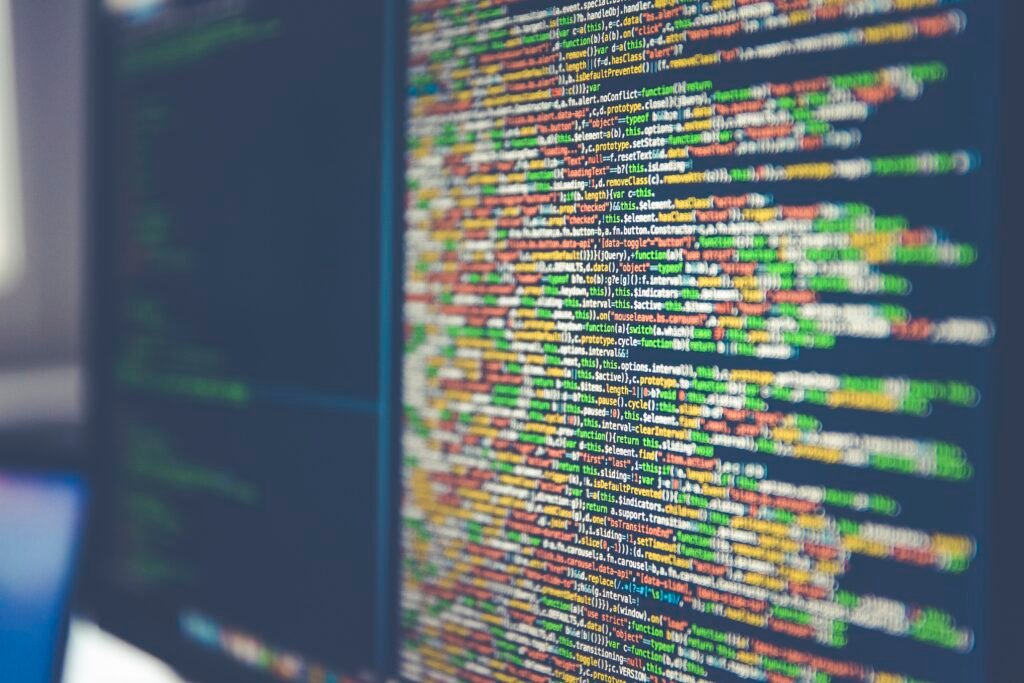Artificial Intelligence (AI) has undeniably transformed numerous industries, offering endless possibilities and convenience in our daily lives. But as the technology continues to advance, concerns arise about its potential dangers. From the fear of job loss to privacy infringements and even the risks of AI systems making decisions without human control, the range of possible dangers is vast. In this article, we will explore some of the ways in which artificial intelligence can pose a threat, prompting an important discussion about the responsible development and implementation of this fascinating technology.
Ethical Concerns
Bias in AI Decision-Making
Artificial Intelligence (AI) systems can be susceptible to bias, which can result in unfair and discriminatory decision-making. AI algorithms are trained on vast amounts of data, and if the data itself is biased or incomplete, the AI system may make biased decisions. For example, if an AI system is used to assist in hiring processes but is trained on historical data that reflects bias against certain demographics, it may perpetuate these biases in its hiring recommendations. This can further deepen social inequalities and hinder progress towards creating fair and inclusive societies.
Privacy Violations
AI systems often require extensive amounts of data to function effectively. However, the collection and processing of personal data raise concerns about privacy violations. If AI systems possess the capability to analyze, interpret, and make predictions about individuals based on their personal data, it can lead to a breach of privacy. Moreover, the potential misuse or unauthorized access to personal data can result in severe privacy breaches and harm individuals’ trust in AI technologies.
Replacement of Human Jobs
As AI technologies continue to evolve and become more advanced, there is a growing concern about the replacement of human jobs. AI systems have the potential to automate various tasks and roles currently performed by humans, leading to unemployment and economic instability. This shift may disproportionately impact certain sectors, leaving many employees without opportunities for reemployment. It is essential to address these concerns and ensure that the benefits of AI are coupled with measures to support workers and foster new job opportunities.
Misuse and Manipulation
Weaponization of AI
One of the significant ethical concerns surrounding AI is its potential weaponization. As AI capabilities increase, there is a risk of malicious actors exploiting AI systems for harmful purposes. For instance, autonomous weapons powered by AI can threaten global security and stability if not properly regulated. The lack of human judgment and control introduces a significant risk factor, as autonomous weapons may make mistakes or intentionally cause harm without appropriate human oversight.
Deepfakes and Misinformation
The rise of AI has facilitated the creation of deepfakes, which are highly realistic and often misleading videos that manipulate or falsify content. Deepfakes can be used to spread misinformation, manipulate public opinion, or even defame individuals. This poses a significant threat to trust, truth, and the integrity of information. The challenge lies in developing AI systems that can effectively detect and combat deepfakes while preserving the authenticity of genuine content.
Cyberattacks and Hacking
AI systems are not immune to cyberattacks and hacking attempts. As AI becomes more ingrained in critical infrastructures and systems, it becomes an attractive target for malicious actors. AI-enabled cyberattacks can have severe consequences, such as breaching sensitive data, disrupting essential services, or compromising national security. Ensuring robust cybersecurity measures and developing AI systems with built-in defenses against such attacks is crucial to mitigate these risks.

Unintended Consequences
Unpredictable Behavior
One of the challenges with AI is its potential for unpredictable behavior. AI systems learn from data patterns and make decisions based on these patterns, but unexpected inputs or incomplete data may result in unexpected outputs. This unpredictability can pose risks in critical domains such as healthcare, finance, or autonomous vehicles. Ensuring transparency and comprehensibility in AI systems’ decision-making processes is vital to identify and address any potential issues arising from unpredictability.
Unfair Distribution of Resources
AI systems can exacerbate existing social inequalities by contributing to the unfair distribution of resources. For example, AI algorithms used in financial services may unintentionally deny certain individuals access to loans or financial opportunities due to biased decision-making. Additionally, if AI-driven systems favor certain populations over others, it can perpetuate existing disparities and hinder progress towards achieving a more equitable society. Careful consideration and monitoring of AI systems are necessary to mitigate these unintended consequences.
Escalation of Conflicts
The use of AI in warfare and conflict scenarios raises concerns about the escalation of conflicts. Autonomous weapons powered by AI could make decisions without human intervention, potentially leading to unintended consequences and escalation. It is crucial to establish frameworks and international regulations to ensure that the use of AI in defense and security aligns with ethical principles, to prevent the misuse or unintended escalation of conflicts.
Lack of Accountability
Limited Transparency in AI Systems
Many AI systems operate using complex algorithms and neural networks that can be challenging to interpret. This lack of transparency makes it difficult to hold AI systems accountable for their decisions. Without an understanding of how an AI system reached a specific conclusion or decision, it becomes challenging to address biases, errors, or ethical concerns that may arise. Striving for transparency in AI systems is essential to ensure accountability and maintain trust in their operations.
Difficulty in Assigning Responsibility
The diverse nature of AI development, deployment, and decision-making processes can create challenges when it comes to assigning responsibility for AI-related outcomes. Various stakeholders, including data scientists, developers, policymakers, and regulators, contribute to the development and deployment of AI systems. Determining accountability in case of errors or harmful consequences becomes complex, especially when multiple parties are involved. Establishing clear frameworks and guidelines for assigning responsibility is necessary to address this lack of accountability effectively.
Legal and Ethical Gaps
The rapid advancement of AI has outpaced the development of legal and ethical frameworks needed to govern its use. As AI applications become more prevalent, existing laws and regulations may not adequately address the challenges and risks they pose. It is crucial to develop comprehensive legal and ethical frameworks that consider the unique aspects and implications of AI technologies. By ensuring that AI systems adhere to ethical standards and align with existing laws, we can mitigate potential risks and protect individuals’ rights.

Dependency and Overreliance
Failure or Malfunction of AI Systems
AI systems are not infallible and can experience failures or malfunctions. If organizations and societies become heavily reliant on AI systems without a proper backup or redundancy plan, a failure or malfunction can have catastrophic consequences. For instance, in critical sectors like healthcare or transportation, relying solely on AI systems without human supervision could compromise patient safety or transportation infrastructure. Balancing the benefits of AI with the need for human oversight is crucial to mitigate these risks.
Loss of Human Skills and Knowledge
As AI technologies advance and automate tasks previously performed by humans, there is a risk of losing valuable human skills and knowledge. Overreliance on AI systems without maintaining human proficiency in critical areas can be detrimental. For instance, in healthcare, overly relying on AI diagnostics without medical professionals’ expertise may result in misdiagnoses or overlooking essential details. Sustaining and nurturing human skills alongside AI developments are essential to ensure a comprehensive and well-rounded approach to problem-solving.
Overconfidence in AI Capabilities
The increasing capabilities of AI may lead to overconfidence in its abilities. This overconfidence can blind us to the limitations and potential risks associated with AI systems. Relying solely on AI systems without human judgment and critical thinking can result in poor decision-making and missed opportunities to address complex problems. Maintaining a balance between the capabilities of AI and human oversight is crucial to avoid unwarranted overconfidence and to harness AI’s potential effectively.
Data Privacy and Security
Data Breaches
The vast amounts of data required for AI systems create an increased risk of data breaches. If unauthorized individuals gain access to sensitive data, it can lead to identity theft, financial loss, or other forms of harm to individuals. The potential impact of data breaches becomes even more significant if AI systems store or process highly sensitive information such as medical records. Implementing robust data protection measures, including encryption, access controls, and regular security audits, is crucial to safeguard against data breaches.
Data Exploitation
AI systems heavily rely on data, and this reliance raises concerns about the exploitation of data for profit or surveillance purposes. Data collected through AI systems can provide valuable insights into individuals’ behaviors, preferences, and vulnerabilities. However, if the data is misused or exploited, it can infringe on individuals’ privacy rights and enable targeted advertising, manipulation, or discrimination. It is vital to establish clear guidelines and regulations regarding data collection, usage, and storage to protect individuals’ privacy and prevent data exploitation.
Invasion of Personal Privacy
As AI systems become more sophisticated, there is an increasing potential for the invasion of personal privacy. Some AI applications, such as facial recognition or surveillance systems, have raised concerns about the collection and analysis of personal data without individuals’ knowledge or consent. The widespread deployment of such systems can result in a loss of privacy and erode trust in public and private institutions. Striking the right balance between the benefits and risks of AI systems is crucial to protect individual privacy rights while harnessing the potential of these technologies.

Adversarial Attacks
Manipulating AI Systems
Adversarial attacks refer to techniques aimed at manipulating AI systems by intentionally feeding them misleading or deceptive data. These attacks can exploit vulnerabilities in AI algorithms, leading to incorrect or compromised outputs. For example, an adversarial attack on an autonomous vehicle’s object recognition system could cause it to misinterpret traffic signs, potentially leading to accidents. Developing robust defenses against such attacks and continuously testing AI systems for vulnerabilities is crucial to maintaining their integrity and reliability.
Evading AI Detection
Adversaries can also attempt to evade detection by AI systems, making it challenging to identify and respond to malicious activities. AI-powered security systems and intrusion detection systems may be susceptible to evasive techniques specifically designed to bypass their defenses. This poses a significant threat to the security and integrity of critical infrastructures and systems. Continual monitoring, research, and collaboration among AI experts, security professionals, and policymakers are necessary to stay one step ahead of those attempting to evade AI detection.
Undermining Trust in AI
Successful adversarial attacks can undermine trust in AI systems, leading to skepticism and resistance towards their adoption. If AI systems are perceived as unreliable or easily manipulated, individuals and organizations may be hesitant to embrace them fully. This lack of trust can hinder the widespread adoption of AI technologies, limiting their potential benefits and societal impact. By actively addressing vulnerabilities and promoting transparency in AI systems, we can build and maintain trust, ensuring the responsible and ethical deployment of AI.
Social and Economic Impacts
Exacerbation of Social Inequalities
AI technologies have the potential to exacerbate existing social inequalities. If biased data or flawed algorithms are used in AI systems, it can perpetuate discrimination and disadvantage certain demographics. Additionally, job displacement resulting from AI automation can further widen the wealth gap. It is essential to prioritize fairness and inclusivity in the development and deployment of AI technologies, ensuring they contribute to reducing, rather than increasing, social inequalities.
Job Displacement and Unemployment
The automation of tasks through AI technologies poses risks to job security and employment. As AI systems increasingly take over routine and repetitive tasks, many jobs may become obsolete, leading to unemployment and economic uncertainty for individuals and communities. Reskilling and upskilling programs, along with proactive measures to create new job opportunities aligned with AI advancements, are crucial to ensure a smooth transition for workers and minimize the negative impact on employment.
AI-Driven Economic Unpredictability
The integration of AI systems into the economy can introduce new complexities and potential volatility. AI algorithms and trading systems already play a role in financial markets, and their influence is expected to grow. However, the reliance on AI-driven decision-making introduces a level of unpredictability that can affect market stability. It is essential to monitor and regulate AI systems to prevent economic bubbles, manipulations, or any form of market disruption due to unchecked AI-driven decision-making.
Autonomous Weapons
Lack of Human Judgment and Control
Autonomous weapons, powered by AI, raise significant ethical concerns due to the lack of human judgment and control in their decision-making processes. These weapons can independently identify, track, and engage targets, potentially leading to unintended harm or inaccurate target selection. Without appropriate human oversight, it becomes difficult to ensure adherence to international humanitarian law and ethical principles in conflict situations.
Mistakes and Accidental Harm
The deployment of autonomous weapons introduces the risk of mistakes and accidental harm. AI systems may misinterpret information, falsely identify targets, or respond to perceived threats with excessive force. Such errors can have devastating consequences, leading to civilian casualties, damage to infrastructure, and escalation of conflicts. Establishing clear guidelines and regulations for the development and deployment of autonomous weapons is crucial to prevent accidental harm and minimize the risks associated with their use.
Ethical Implications of Autonomous Killing
The development and use of autonomous weapons raise deep ethical questions about the morality and acceptability of AI-enabled killing. Granting machines the ability to make life and death decisions removes fundamental human agency and responsibility in the act of warfare. The lack of accountability and the potential for unforeseen consequences makes it imperative to engage in international discussions and establish strict regulations regarding the development and use of autonomous weapons.
Superintelligence and Existential Risks
AI Outpacing Human Intelligence
Superintelligence refers to AI systems that surpass human intelligence and capability. While reaching superintelligence remains speculative, the potential risks associated with it cannot be ignored. If AI systems were to outpace human intelligence, they could surpass human control and understanding, making their behavior and decision-making unpredictable. This scenario raises existential questions about the relationship between humans and superintelligent AI and the potential implications for the future of humanity.
Potential for Uncontrolled AI Growth
If AI systems gain the ability to improve themselves autonomously, there is a risk of uncontrolled AI growth. This phenomenon, known as an intelligence explosion, could lead to the rapid evolution of AI beyond human comprehension or control. The implications of such uncontrolled growth are uncertain but may include unintended consequences, the violation of ethical boundaries, or even existential threats to humanity itself. Responsible AI development must consider the risks and establish safeguards to prevent uncontrolled growth.
Existential Threats to Humanity
The emergence of superintelligent AI poses existential risks to humanity. From unintended consequences to the loss of control, the potential impact of superintelligence on society and humanity’s survival cannot be overstated. It is necessary to prioritize research into the safety and ethics of AI development and integrate safeguards into AI systems’ design to prevent unintended harm or catastrophic scenarios. Active collaboration among policymakers, researchers, and AI developers is essential to address these existential risks effectively.
In conclusion, while artificial intelligence holds immense potential for innovation and progress, it is not without its dangers. Ethical concerns, including bias in decision-making, privacy violations, and the replacement of human jobs, must be adequately addressed to ensure fairness and inclusivity. Misuse and manipulation, such as weaponization of AI and the spread of deepfakes, require vigilant measures to safeguard against malicious intent. Unintended consequences, lack of accountability, dependency, and overreliance on AI systems necessitate continuous evaluation and mitigation. Data privacy and security, adversarial attacks, and social and economic impacts must be carefully managed to protect individuals and ensure the responsible deployment of AI technologies. The ethical implications of autonomous weapons, the rise of superintelligence, and the potential existential risks they present require global cooperation and comprehensive regulations. By recognizing these concerns and actively working towards their resolution, we can shape a future where AI technologies benefit society while prioritizing human welfare, privacy, and safety.






